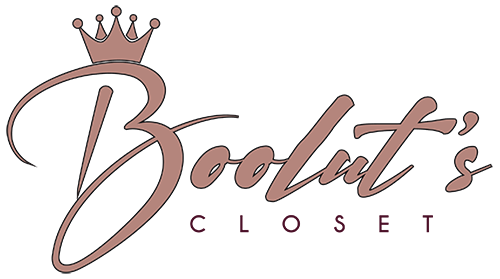- Ghana Faces Economic Crossroads as Political Tensions Rise Following Breaking News in Ghana Today, Sparking National Debate.
- Economic Headwinds Facing Ghana
- Political Tensions and Social Impact
- Rising Public Discontent and Protests
- Government Response and Policy Measures
- The Role of International Partners
- Looking Ahead: Challenges and Opportunities
Ghana Faces Economic Crossroads as Political Tensions Rise Following Breaking News in Ghana Today, Sparking National Debate.
Breaking news in ghana today centers around a confluence of economic challenges and rising political tension, prompting significant national debate. The recent developments, including a depreciating currency and increasing public debt, have created a precarious situation for the West African nation. This complex scenario is fueled by concerns over government spending, inflation, and the potential for social unrest, prompting an urgent need for comprehensive economic reforms and renewed political dialogue to navigate these turbulent times and ensure stability.
Economic Headwinds Facing Ghana
Ghana’s economy has been experiencing considerable pressure in recent months, largely attributed to a combination of internal and external factors. A significant decline in the value of the cedi against major international currencies has raised concerns about import costs and overall inflation. Coupled with this, the national debt has reached substantial levels, limiting the government’s fiscal space for investment in critical infrastructure and social programs. These economic issues are not isolated; they are interlinked and pose a serious threat to sustained economic growth and development.
| GDP Growth Rate | 3.5% | 2.8% |
| Inflation Rate | 31.7% | 25% |
| National Debt (GDP Ratio) | 78.4% | 82% |
| Exchange Rate (GHS/USD) | 7.8 | 9.0 |
Political Tensions and Social Impact
The economic difficulties are exacerbating existing political tensions within Ghana. Opposition parties are intensifying their criticism of the ruling government’s economic management, while civil society groups are organizing protests demanding accountability and transparency. There is a growing sense of frustration among the public, particularly regarding the rising cost of living and limited employment opportunities. This could potentially lead to social unrest if not addressed proactively. The situation also makes it extremely difficult to push forward well thought out economic policies.
Rising Public Discontent and Protests
The escalating cost of living, driven by high inflation and a weakening currency, is significantly impacting Ghanaians across all socioeconomic strata. Food prices have experienced substantial increases, making it challenging for many families to afford basic necessities. Similarly, the cost of fuel and transportation has risen sharply, affecting commuters and businesses alike. These economic pressures are fueling widespread discontent, leading to an increase in protests and demonstrations. Frequent protests have become a common feature of the social and political landscape, with citizens expressing their dissatisfaction with the government’s handling of the economic crisis. These events reflect a growing public demand for effective solutions and a more accountable government.
- Increased cost of food and essential goods
- Rising fuel prices and transportation costs
- Limited job opportunities for young people
- Erosion of purchasing power among the middle class
- Growing dissatisfaction with government policies
Government Response and Policy Measures
The Ghanaian government has implemented several policy measures aimed at addressing the economic challenges. These include tightening monetary policy to curb inflation, seeking financial assistance from international organizations like the International Monetary Fund (IMF), and implementing austerity measures to reduce government spending. However, these measures have been met with mixed reactions, with critics arguing that they are insufficient to address the root causes of the crisis. Furthermore, the implementation of austerity measures has been criticized for potentially disproportionately affecting the most vulnerable segments of the population. The government is facing a challenging balancing act between implementing necessary economic reforms and mitigating the social consequences of those reforms.
The Role of International Partners
Ghana is actively seeking support from international partners, including the IMF, the World Bank, and bilateral donors, to navigate the economic crisis. Negotiations with the IMF for a financial assistance package are ongoing, with a focus on implementing structural reforms to stabilize the economy and restore debt sustainability. International partners are also providing technical assistance and support for various development projects aimed at promoting economic growth and diversification. However, securing robust and sustainable support requires demonstrating a commitment to sound economic governance and transparency.
- Negotiations with the IMF for a financial aid package
- Seeking debt restructuring options from creditor nations
- Attracting foreign investment to boost economic growth
- Strengthening regional trade partnerships
- Improving governance and transparency in public finances
Looking Ahead: Challenges and Opportunities
Ghana faces a challenging path forward, but also possesses significant opportunities for recovery and sustainable development. Addressing the economic crisis requires a comprehensive and well-coordinated approach involving the government, private sector, civil society, and international partners. Diversifying the economy beyond its reliance on commodity exports, investing in education and skills development, and promoting good governance are crucial for long-term economic resilience. Successfully overcoming these challenges will require strong leadership, political will, and a shared commitment to building a more prosperous and equitable future for all Ghanaians. Perhaps then, this nation will move out of such a slump.
| Agriculture | High | Limited access to finance, infrastructure, and technology |
| Tourism | Medium | Impact of global travel restrictions, sustainability concerns |
| Manufacturing | Medium | High production costs, lack of skilled labor |
| Technology | High | Limited digital infrastructure, access to funding |


